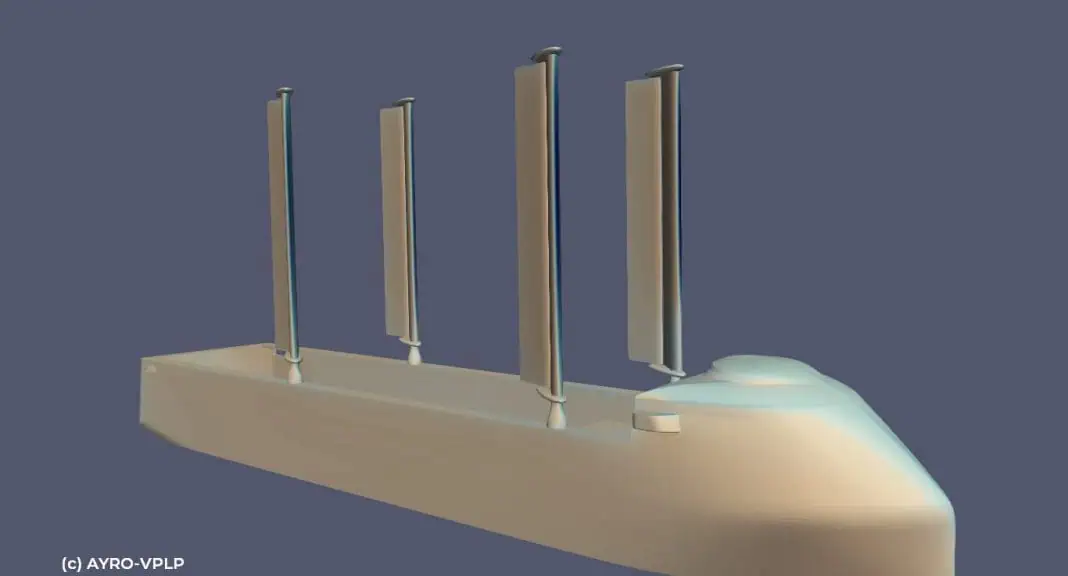DNV GL, the world’s leading classification society, has awarded AYRO an Approval in Principle (AiP) for its Oceanwings 3.6.3 wind assisted propulsion system for ships. The Oceanwings 3.6.3 system is designed to enable ship owners and operators to leverage wind energy to improve the energy balance of individual vessels and fleets, thereby significantly reducing carbon emissions.
As incoming maritime regulations are ramping up the pressure to improve sustainability and reduce emissions, maritime stakeholders are looking to reduce their greenhouse gas emissions and improve their EEDI or EEXI efficiency index, as part of efforts to comply with the IMO 2030 GHG strategy. The Oceanwings wind propulsion system is a 363 square meter 2-elements wingsail applicable for both newbuildings and in the retrofit of existing ships.
“This AIP award is a significant step in the development of AYRO and we are happy to have passed the first step of the on-going certification process of our wingsail,” says Ludovic Gérard, CEO of AYRO. “This is the result of the work of the entire technical team over the past few months. The Oceanwings® 3.6.3 are suitable for most types of cargo vessels. We continue to receive a lot of enquiries and numerous requests for feasibility studies from shipowners and charterers worldwide, for both retrofits and newbuilding projects. Our mission and vision is to support them in designing their vessels as well as fitting and maintaining the Oceanwings® in order to help them meet the challenges of competitiveness and GHG emission reductions.”
Following 10 years of research, a first prototype in 2017, and the industrial demonstrator Energy Observer in 2019, AYRO continues the development and industrial process of their system with the AiP from DNV GL. After a review of the main plans and documents of the Oceanwings 3.6.3 system against the relevant DNV GL rules for the classification of ships, DNV GL was able to issue an AiP statement confirming that no significant obstacles exist to prevent the concept from being realized.
“We are very pleased to be able to issue this AiP to AYRO for its Oceanwings 3.6.3 system,” said Hasso Hoffmeister, Senior Principle Engineer at DNV GL – Maritime. “National and international regulations, in addition to governments, customers and the public are all increasing pressure on the industry to decarbonize. An AiP can help build confidence in shipowners and operators by demonstrating that new technologies can not only help them improve sustainability, but follow well established, trusted and independent standards.”
DNV GL has also recently developed a standard for the certification of wind assisted propulsion systems in response to enquiries for the independent assessment of those systems.
An Approval in Principle is an independent assessment of a concept within an agreed framework, confirming that the design is feasible and no significant obstacles exist to prevent the concept from being realized. The AIP is typically carried out at an early stage of a project to confirm its feasibility towards the project team itself, company management, external investors or future regulators.












